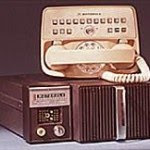It is a play on words. So sue me. I am a businessman and a theologian who is concerned with the state of ethics in current business practices.
People consider a prophet as someone who can see into the future. In the case of the Old Testament prophets however, this was only one of their functions. Their main function was to bring the children of Israel back to the laws of God.
 They were a weird bunch! One was married to a prostitute; one ran around naked and covered himself with poop -- generally not the kind of people you invite to your daughter's wedding. Philip Yancey refers to them as “Fusty Old Men”[1]
They were a weird bunch! One was married to a prostitute; one ran around naked and covered himself with poop -- generally not the kind of people you invite to your daughter's wedding. Philip Yancey refers to them as “Fusty Old Men”[1] In fact, the Israelites, before knowledge came upon them would not consider them reasonable in any fashion. That begs the question -- what his reason? Reason is a logical progression towards a decision or a world outlook based on past experience and knowledge of existing patterns.
This entire preamble is to position this blog on a point of reference.
I started in business in 1981 as a commercial traveler in the jewelry business. The jewelry business was established on a strong sense of trust. We knew our clients, we knew our competitors, and we all looked out for one another by the very nature of the products we carry in our cars. Some of us carried live goods, real gold and stones, but where possible, our samples were brass and glass.
 We were on the bleeding edge of mobile communication because of security. That meant that I had an old-fashioned VHF handset in my car. You picked it up, waited for a mobile operator to answer, and then asked to be connected. In terms of ordering, we wrote on the three-part carbonless forms, gave one copy to the client, kept one copy, and every other day for the original copy in three, put it in a stamp envelope and then into a mailbox. Our deliveries were among the best in the industry. Three weeks after the receipt of the order the customer could expect delivery.
We were on the bleeding edge of mobile communication because of security. That meant that I had an old-fashioned VHF handset in my car. You picked it up, waited for a mobile operator to answer, and then asked to be connected. In terms of ordering, we wrote on the three-part carbonless forms, gave one copy to the client, kept one copy, and every other day for the original copy in three, put it in a stamp envelope and then into a mailbox. Our deliveries were among the best in the industry. Three weeks after the receipt of the order the customer could expect delivery.In my career, I have run the gamut from index cards and a recipe box to manage my clients, through daytimer and one write systems (you kids will have to look that up) through teletypes, faxes, PCs, contact managers, palm pilots to the net book and smart phone I currently use. I am not a Luddite and have embraced technology throughout my career.
What concerns me however is that just because communication is faster, modeling is more robust, and our current business mentality is based on technology, this doesn't mean that certain constructs and realities are old-fashioned or no longer pertinent.
Adam Smith's laws of supply and demand, the value of customer relationship, and meeting client needs are just as important now as when ship owners met Edward Lloyd's coffee house to make agreements to protect a cargo of their ships.
Market research, multimedia campaigns, multilevel marketing, multimedia advertising have all been modeled through computer algorithms to maximize profit. Somewhere in this mix, value for dollar has been lost. We are so busy synthesizing the sizzle, but we have forgotten to even buy the steak.
One of my former VPs of sales, a continental European, when evaluating our latest marketing campaign said "you can put lipstick on a pig, but it is still a pig!"
One of the things this blog will try to address is Dave Thomas’ famous question: WHERE’S THE BEEF?
[1] Christianity Today Nov. 1978

